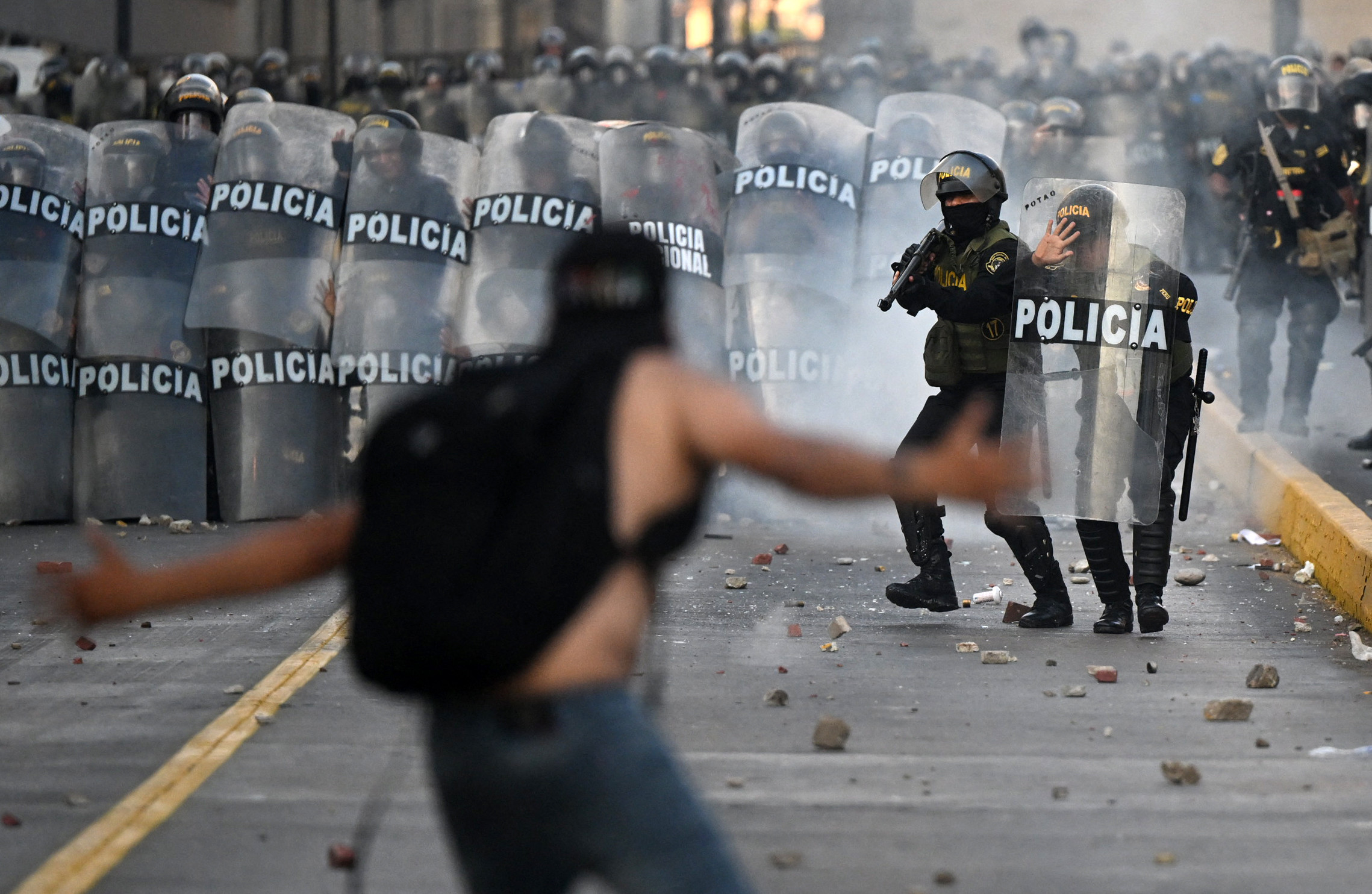A year after a wave of protests erupted across Peru, leaving 49 civilians dead and hundreds gravely injured during a military and police crackdown, Amnesty International urges authorities to redouble their efforts to secure truth, justice, and reparation for all victims of this dark chapter in Peru's history.
On November 27, Peru's Attorney General Patricia Benavides filed a constitutional complaint against President Dina Boluarte and several cabinet ministers, just hours after prosecutors accused the Attorney General herself of heading a criminal corruption network. The complaint is part of the first stage of a process before Peru's Congress that could strip the president and ministers of immunity to face criminal charges. It draws on a small portion of a much larger ongoing criminal investigation against the president, which must be expedited without delay.
In addition to the constitutional complaint, the Public Prosecutor's Office opened a series of investigations in December 2022 and January 2023. One investigation examines the command responsibility of seven senior officials, including President Dina Boluarte, cabinet ministers, and police and military commanders. Another investigation, conducted by the Special Team of Prosecutors for Victims of Social Protests, established in March 2023, focuses on police and military operations carried out across the country.
"While the Attorney General's constitutional complaint is a step in the right direction, the other ongoing criminal investigations must be strengthened," said Ana Piquer, Americas Director at Amnesty International. "Prosecutors have made some progress in their investigations, including interrogating senior public servants, police, and the military, but they must dig deeper. Evidence suggests the possible criminal responsibility of commanders or other superiors. Prosecutors must do everything in their power to get to the bottom of this and guarantee the rights of those affected to truth, justice, and reparation."
Amnesty International documented 25 of the 49 deaths that occurred during protests between December 2022 and February 2023 and found that at least 20 could be considered extrajudicial executions, a crime under international law. All of these deaths should be investigated as such. Prior to the presentation of the November 27 constitutional complaint, no public official had been formally accused. The complaint names four police officers and one member of the army, all apparently of medium or lower ranks in the chain of command. However, no public servant has been arrested, even though the criminal files on the deaths include the names of the commanders in charge of the operations and the units, police, and military personnel involved in the repression. Moreover, several public officials, in publicly reported statements to prosecutors, have pointed out that the president and cabinet ministers were informed of the operations.
"The state of the investigations into deaths in protests is extremely concerning, with some of the most basic tasks not yet completed," said Marina Navarro, Executive Director of Amnesty International Peru. "For instance, several family members and witnesses have still not been interviewed, and in some cases even fundamental evidence such as autopsies were only recently completed. In the current context, it is imperative to ensure prompt, thorough, and impartial investigations. Investigations must not be shelved because they ignored or omitted key evidence. Each day that passes increases the indignation of those who live with serious injuries or with the pain of having lost their loved ones. Peru and the world must know the truth before it is too late."










Trackbacks and Pingbacks